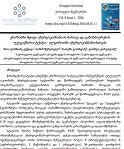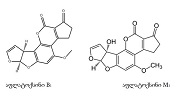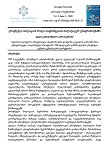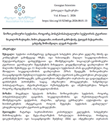Selection of Mathematical Optimization Methods for Solving Engineering Practice Problems
Downloads
Optimization theory plays a pivotal role in contemporary scientific and technical endeavors, permeating various engineering disciplines. From fine-tuning chemical-technological systems to optimizing production processes, the application of optimal management techniques is widespread, particularly in the context of complex automation and sophisticated technical setups. The primary goal of optimization is to identify the most optimal solution among numerous potential outcomes, employing diverse strategies ranging from analytical methodologies to numerical simulations. This paper explores the efficacy of the fastest ascent method in approaching the extremum of the Rosenbrock function, emphasizing the importance of selecting appropriate starting coordinates. Furthermore, the study investigates the impact of errors introduced through random variables, highlighting the need for robust methodologies capable of navigating uncertainties. Through comprehensive analysis and experimentation, this research contributes to the ongoing discourse surrounding optimization methodologies, shedding light on their effectiveness and applicability in diverse engineering contexts.
Downloads
Sergiy Butenko, Panos M. Pardalos Numerical Methods and Optimization An Introduction Edition1st Edition,, First Published, 2014
Jamil, Momin, and Xin-She Yang. "A literature survey of benchmark functions for global optimization problems." International Journal of Mathematical Modelling and Numerical Optimization 4.2 (2013)
George Lindfield, John Penny Numerical Methods: Using MATLAB · Elsevier Science, 2018
Nona Otkhozoria, Vano Otkhozoria, & Shorena Khorava. (2022). Search for an extremum using the steepest descent method under the conditions of experimental errors. World Science, (2(74). https://doi.org/10.31435/rsglobal_ws/28022022/7785
Z Azmaiparashvili, N Otkhozoria (2021) “Mathematical Model for Studying the Accuracy Characteristics of Devices for Measuring the Resonant Frequency of Oscillatory Systems New Approaches in Engineering Research” 121-131 https://doi.org/10.9734/bpi/naer/v5/10242D
Otkhozoria, N., Narchemashvili, M., & Otkhozoria, V. (2023). The effectiveness of the Hooke-Jeeves method in the experiment under error conditions is assessed. Georgian Scientists, 5(4), 285–288. https://doi.org/10.52340/gs.2023.05.04.25
Zaal Azmaiparashvili, Nona Otkhozoria, Alexander Maltsev. Analytic-Imitation Model for Determination of the Natural Frequency of Oscillatory Systems and Its Research. Engineering and Technology. Vol. 4, No. 6, 2017, pp. 82-87. http://www.aascit.org/journal/archive2?journalId=896&paperId=5986
Menabde, T., Otkhozoria, N., & Otkhozoria, V. (2024). Use of the theory of measurement uncertainty in procedures for data processing and results obtained by checking-calibration gas flow meters. International Science Journal of Engineering & Agriculture, 3(2), 40–46. https://doi.org/10.46299/j.isjea.20240302.03
Copyright (c) 2024 Georgian Scientists

This work is licensed under a Creative Commons Attribution-NonCommercial-NoDerivatives 4.0 International License.


























































































































































































































